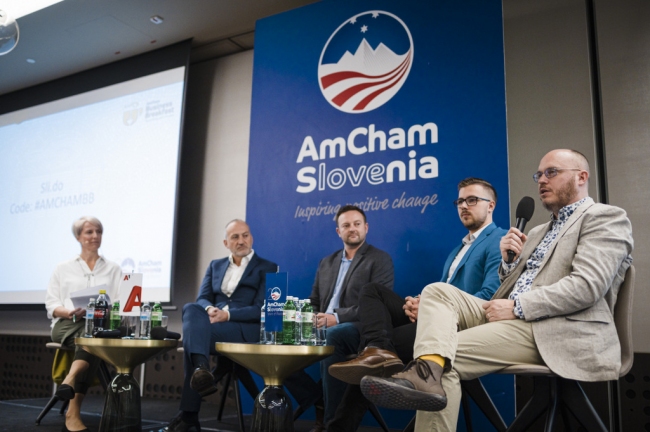There are several paths to utilising the advantages provided by digitalisation, but all would need to include the entire society and be based on adequate education, agreed the panellists at AmCham Business Breakfast, while not agreeing as to what level it makes sense to develop in this field.
At the panel, Estonian Ministry of Economic Affairs and Communications IT legislation advisor Sten Tikerpe said that digitalisation had become a reality for the entire society in his country. Every citizen gets a digital identity at birth, enabling them to communicate with the state administration fully digitally, he said, adding that the state was trying to introduce as user-friendly technological solutions as possible. According to Tikerpe, education is the key in the implementation of the concept of digital society, including in the form of lifelong learning. "Changes call for faster adjustment of school curricula," he added.
As the question of privacy and cybersecurity pops into mind when digitalisation is discussed, Google roboticist and innovator Christopher Coomes asserted that many people were too worried when it came to cybersecurity. If all safety measures are taken, there are no reasons to worry, he said, adding that everybody participated in traffic at least once in a while although safety had not been fully guaranteed.

Cultural anthropologist Dan Podjed of the Institute of Slovenian Ethnology emphasised as a risk factor the behaviour of individuals who act differently on the internet than thy would in actuality. "We should stop talking about the parallels between the digital and real worlds, because only the latter exists," he said, pointing to the paradox of people wanting privacy in their own homes while giving out a large quantity of personal information on the internet.
A1 Telekom Austria Group chief operating officer Alejandro Plater sees the issue of protection of privacy from a different perspective. He is convinced that an average user is willing to give up on a certain share of privacy in exchange for numerous advantages brought by technology. According to him, it is better to have some problems with privacy than to live in absolute poverty.
The discussion also touched on the question why some countries are so far ahead of others in digitalisation, with Tikerpe saying that it had been established in Estonia long ago that countries and societies had no choice. "As we do not have rich natural resources or other key advantages, we have found our main advantage in increasing efficiency," he added.
Source: STA
You can watch the video of the whole event HERE.
You can see the photos from the event HERE.

